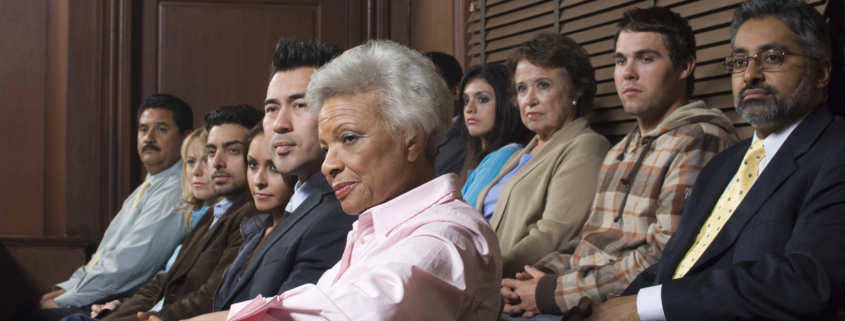How proximity, courtroom familiarity, and hands-on representation help protect your future when facing DUI charges in Orange County
When people in Orlando search for an “Orlando DUI lawyer near me,” it’s usually because the arrest was recent and frightening. The flashing lights, the field tests, the ride to the Orange County Jail — those moments stay with people. Whether you were stopped downtown near Church Street, pulled over along Semoran Boulevard, questioned near the UCF area, or stopped after leaving a theme-park district, the impact is the same: you’re suddenly facing a criminal charge that can affect your job, your license, and your reputation.
As an Orlando DUI Defense Lawyer, I meet clients from every corner of Orange County — Winter Park, Ocoee, Dr. Phillips, Conway, Pine Hills, Waterford Lakes, and everywhere between. People often tell me they searched for someone “near me” because they needed help fast and wanted an attorney familiar with the area, the courts, and the officers involved.
If you were arrested anywhere in Orange County, you can call my office at 1-888-640-2999 to schedule a consultation. My firm does not provide free consultations, but I offer straight answers, detailed analysis, and personal attention from the moment you call.
What “near me” really means when hiring an Orlando DUI lawyer
Most people think “near me” simply refers to distance, but in DUI defense, it goes far beyond geography. DUI charges in Orlando involve technical issues, fast deadlines, and specific local procedures that don’t always match what you’ll find in other counties. When you hire someone close to where the arrest happened, you’re hiring a lawyer who understands:
- how local officers conduct stops
- which prosecutors handle DUI cases
- how Orange County judges schedule hearings
- how field-sobriety test instructions are commonly given in this region
- traffic patterns and locations relevant to the stop
- regional patterns in breath-machine maintenance and usage
Finding someone “near me” is really about finding someone who understands the environment where your case occurred.
How Florida DUI laws shape your defense
To understand what to look for in a local DUI attorney, you must know what the law actually says. Under Florida Statute § 316.193, a person commits DUI by either:
- driving or being in actual physical control of a vehicle while impaired, or
- having a breath or blood alcohol concentration of 0.08 g/dL or higher.
Florida’s penalties are serious:
- Jail time
- Probation
- Vehicle impoundment
- Ignition interlock requirements
- Fines
- Permanent criminal record
- Multi-year license revocations
Enhanced penalties apply if the BAC is 0.15 or higher or if a minor was in the vehicle.
The administrative consequences move fast too. You only have 10 days after arrest to contest the immediate license suspension under § 322.2615. This alone makes hiring someone “near you” important — you want a lawyer who can file that challenge right away and begin reviewing the evidence.
Why clients choose a DUI Attorney in Orlando rather than someone from outside the region
A DUI case involves more than reading statutes — it also involves understanding how DUI enforcement is practiced here in Orlando. Local knowledge includes familiarity with:
1. Where the stop occurred
Stops on I-4 during construction zones, for example, often involve confusion from shifting lanes. Stops near downtown nightlife often involve foot traffic, limited visibility, or loud surroundings that affect officer observations. Stops near the airport or the UCF campus involve different law-enforcement branches with different patterns in their reports.
Having handled DUI cases throughout the area, I can often anticipate the types of errors or assumptions officers may have made.
2. Which agency made the arrest
Your case may involve:
- Orlando Police Department
- Orange County Sheriff’s Office
- Florida Highway Patrol
- University police
Each agency has its own training style, policies, and habits in conducting field tests and writing reports. Knowing those patterns helps shape the defense.
3. How prosecutors in Orange County approach DUI cases
Some prosecutors offer reductions more readily in borderline cases. Some are strict about refusals. Some emphasize checkpoints. Knowing these tendencies helps guide realistic strategy discussions.
4. What the judges expect
Every judge handles DUI cases differently. Some are meticulous about deadlines, some allow extended hearings, and some are strict about admitting certain types of evidence. I prepare clients based on real experience in these courtrooms.
What you should expect when hiring an Orlando DUI lawyer near you
When clients meet with me for DUI defense, they often say they feel relieved because they now have someone who understands the local courts and can step in quickly. Here is what clients should expect when hiring an attorney nearby.
Prompt response and immediate action
I respond quickly because DUI cases require fast steps. The administrative suspension challenge must be filed within ten days, and early access to evidence often makes or breaks a case.
Detailed review of field-sobriety exercises
Field tests are subjective. Pavement texture, lighting, medical conditions, footwear, and stress all matter. I review every frame of video myself.
Careful analysis of the breath test
Florida’s implied-consent rules under § 316.1932 and § 316.1933 require officers to follow strict procedures. I review calibration logs, observation periods, and operator credentials.
Clear communication throughout the process
Clients should never wonder what is happening or what comes next. I keep clients informed at every step.
A strategy that matches your goals
Some clients want the case dismissed. Some want a reduction to reckless driving under § 316.192. Some want to avoid jail. I work with your individual priorities.
A fictional but realistic example: “Anthony J.”
Anthony, a 29-year-old Orlando resident, was pulled over on Universal Boulevard after leaving a work gathering. The officer said he “hesitated at a turn” and suspected impairment. Anthony performed field exercises in a crowded parking-lot area where cars were passing behind him. The breath test showed a borderline reading.
Anthony searched online for a “DUI lawyer near me” because he needed someone who understood the area and could meet with him quickly. He contacted my office, and we met soon after.
After reviewing the footage, several issues stood out:
- The officer gave overlapping instructions and did not demonstrate the one-leg-stand test accurately.
- The parking-lot surface had uneven dips from years of vehicle traffic.
- The breath machine had missed a maintenance record the month before.
I filed a motion to suppress the breath result based on procedural violations. The prosecutor later agreed to reduce the charge to reckless driving, sparing Anthony from a DUI conviction.
Stories like this reflect what can happen when a lawyer familiar with the area quickly examines the evidence.
How proximity helps during the DMV hearing
Because the DMV administrative hearing (Formally called a § 322.2615 hearing) is separate from the criminal case, timing and location both matter. These hearings are time-sensitive, witnesses must be subpoenaed quickly, and detailed questioning often determines the outcome. Hiring someone “near you” — or more accurately, near the courthouse and DHSMV facility — increases the likelihood of fast preparation.
I attend these hearings myself. I question the officer, challenge the basis for the stop, and work to prevent unnecessary license suspension.
The benefits of having a local DUI Defense Lawyer on your side
Clients often tell me they feel reassured knowing their attorney knows the area, the courts, and the officers involved. Here’s why it matters:
- Local attorneys understand regional enforcement habits.
- Travel time is minimized, meaning hearings and meetings happen faster.
- Attorneys familiar with the courthouse can anticipate scheduling and procedural issues.
- Local insight helps explain how evidence from specific locations may be interpreted.
- Clients get more personal and accessible representation.
Being “near you” means being able to act swiftly and being familiar with how DUI arrests happen in this community.
Frequently Asked Questions About Finding an Orlando DUI Lawyer Near Me
Does it matter if the DUI attorney is located in Orlando instead of another Florida city?
Yes. While any Florida-licensed attorney can technically defend you, DUI defense is highly local. Orlando officers conduct stops differently than officers in other counties. Orange County prosecutors handle DUI cases with their own guidelines, and judges follow specific procedures. Hiring someone who regularly appears in this courthouse provides an advantage.
What should I look for when I search online for a DUI lawyer near me?
Look for someone who handles DUI cases frequently, understands breath testing, knows the Orange County courts, and communicates directly with clients. Choose someone who explains your options clearly and shows familiarity with local DUI enforcement patterns.
Should I choose the closest attorney to my house or the courthouse?
Proximity matters, but courtroom experience matters more. You want a lawyer close enough to meet with you quickly and close enough to the court to understand how hearings are handled. I represent clients across all Orlando and Orange County courts regularly, which is more valuable than simply being located near an intersection.
Can a local DUI attorney appear in court for me if I can’t make it?
For many hearings, yes. I attend routine court dates on behalf of my clients, which helps reduce their stress and avoid unnecessary work conflicts. Some hearings require the client’s presence, and I make sure clients understand when attendance is required.
What if I already hired someone but they’re not local and I’m concerned?
You have the right to switch attorneys if your case has not reached a stage where the court would be disrupted by the change. Many clients transition to my representation because they want someone more familiar with the Orlando courts.
What if my DUI arrest happened far from where I live but still within Orlando?
That happens often. People live in Winter Garden but are arrested near Downtown Orlando. Others live in East Orlando but are stopped near the attractions. What matters most is hiring someone who defends DUI cases in the exact courthouse where your case will be heard.
Contact Orlando DUI Defense Attorney Beryl Thompson-McClary at 1-888-640-2999 For A Consultation
If you were arrested for DUI anywhere in Orlando or the surrounding communities of Orange County, I am available to discuss your case, explain your rights, and begin protecting your future. Your choice of attorney matters, and the help you receive in these early days can shape the entire outcome of your case. Call 1-888-640-2999 to schedule your consultation.














